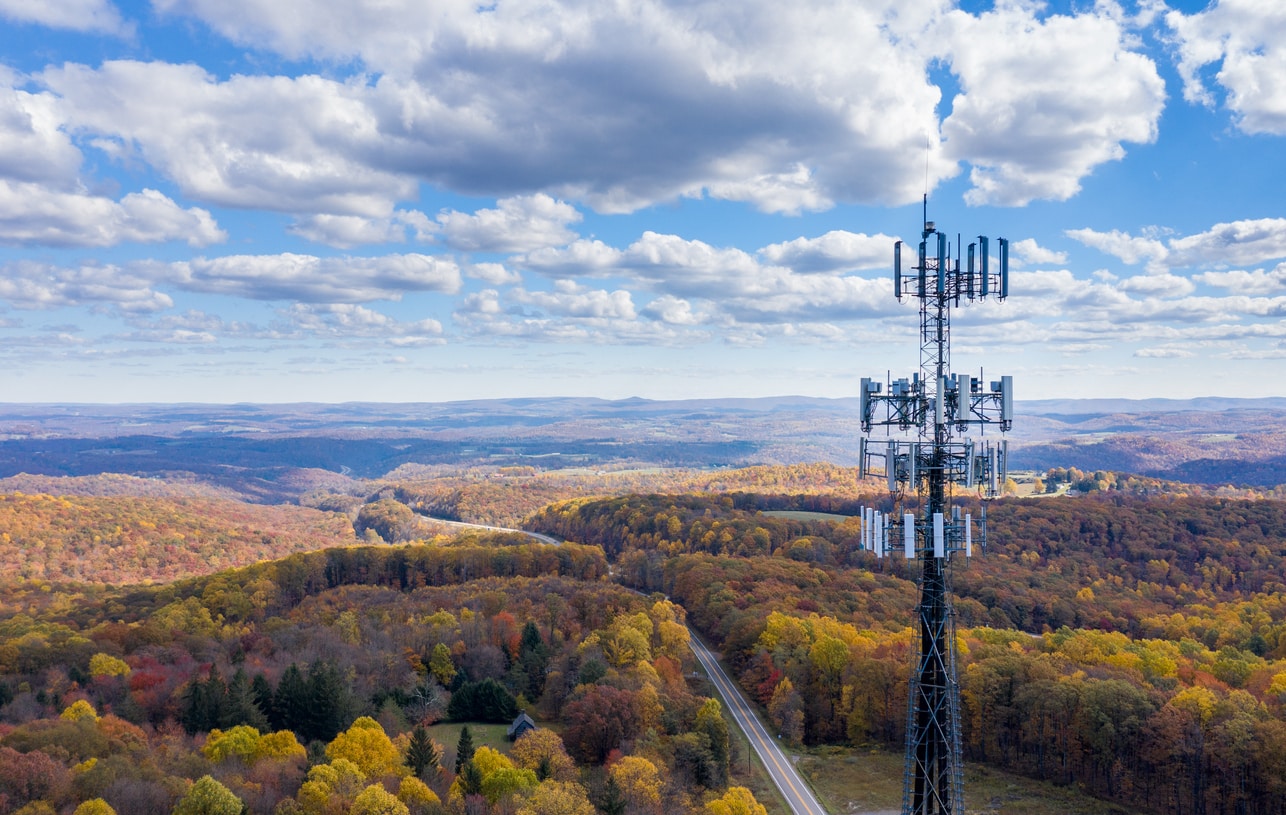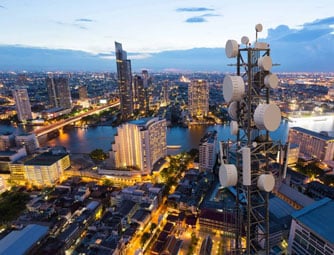7 Benefits of Expanding Telecom to Rural Areas
March 3, 2021

By 2015, about 56% of the world’s population did not have an internet connection. While we are talking about the 5G network, cellular technology has been an urban concept for many years. However, the situation is gradually improving, especially after the United Nations signed Universal and Affordable Internet Provisioning for Everyone, Everywhere by 2020. Since then, governments and telecom companies have been investing hugely to extend broadband to remote, rural villages.
What comes to your mind when you hear about the internet? For some people, it’s all about Twitter, Facebook, Instagram, and other social sites. However, it’s more than that. It’s more about rural farmers acquiring national data in crops and demand and supply. It’s about students studying wherever they are and expanding their knowledge beyond the pages of a textbook. It’s about many other things. This is why broadband deployment to every place, including rural areas, is vital.
What Does Broadband Deployment to Rural Areas Entail?
According to the Federal Communications Commission (FCC), 97% of Americans in Urban settings have access to high-speed internet. This number drops to 65% in rural areas. In this context, about 30 million Americans cannot reap the benefits of the digital age.
In this regard, FCC has been collaborating with Telecom companies to expand broadband across America. This has been achieved through various initiatives, such as:
- Setting up Wi-Fi hotspots– These are wireless access points that are located in public locations. They provide internet access to users via their smartphones and laptops. Over the last few years, Wi-Fi hotspots have been established in public libraries, hotels, cafes, and hotels in rural settings.
- Establishment of Google’s Internet Balloons– These take the form of geostationary balloon satellites that float in the atmosphere. Telecom companies and governments have liaised with Google to provide internet connectivity in remote places through the balloons.
- Erection of Mobile Towers, TVs, and the IoT– In recent years, telecom giants, such as T-Mobile, have increased their effort in placing mobile towers in rural areas to ensure that locals can enjoy the Internet of Things and 5G internet.
How Broadband Access Benefits Rural Communities
Expanding telecommunication infrastructure to rural areas is vital. As you know, high-speed internet access is critical to job creation, civic engagement, and education, among other areas.
Here are 7 ways how rural communities benefit from broadband access:
-
Local Businesses are Put on a Global Scale
Who said that rural businesses don’t need an online market? They do, just like the urban ones. With high-speed internet connectivity, small, local businesses are put on a global scale.
They can expand their market base and have greater access to cloud-based services and a wide variety of online tools. As noted in a recent article by George Sadowsky at CircleID, broadband network saves local businesses money and time needed to drive traffic to their stores.
-
People Can Work Where They Are
Previously, people have been migrating from rural to urban areas where the impacts of the digital revolution are real. Rural areas have not been good places to work due to a lack of internet connectivity.
However, with the expansion of broadband, people can work digitally from rural settings. The geographical line has been blurred. Now that people are working from home due to COVID-19, you don’t have to move to your nearest urban center to enjoy the 5G network.
-
Access to Education
Let’s start with the current crisis caused by the Coronavirus. With school closures, most schools have shifted to online learning. How do you do this as a student if your village does not have an internet connection? This has been a real issue for many rural populations.
Expansion of broadband to rural settings got this sorted. If you live 100 kilometers from your nearest university, you can comfortably take online classes at home. Students from rural settings can enjoy digital learning as much as urban ones.
-
Promoting Domestic Tourism
The internet could be a major force in attracting people to rural villages, especially those who participate in their profession and economy through the internet. There are many individuals who are tired of the urban hustle. Some rural areas are amazing tourist destinations, and they would attract even more visitors if they have an internet connection.
-
The Locals Stay Connected
If you are working in an urban area, there is a high likelihood that you might settle in a rural setting after retirement. However, you want this area to have an internet connection. You want to catch up and stay connected with friends and friends.
Leave alone retirees. Even rural communities want to enjoy digital connections just like everyone else. They want to be on Twitter, Facebook, or other interactive sites.
-
Real-Time Communication and News
Who would want to miss important news updates? Through Wi-Fi hotspots, rural communities can access national and international news via social media or other digital platforms. They can also watch emerging trends on YouTube.
-
Healthcare is Revolutionized
Through broadband expansion, rural clinics and hospitals are significantly advantaged. They can connect with large medical facilities in urban areas. The local populations can also chat with doctors online without driving to the nearest cities.
The Bottom Line
Rural Broadband deployment is one way of bridging the digital divide between rural and urban populations. This is critical for economic development, education, job creation, and civic engagement. Are you looking for a job in the telecom space? Checkout the NextGen Global Resources, LLC website to see our open positions! You can also contact usfor more information.




























